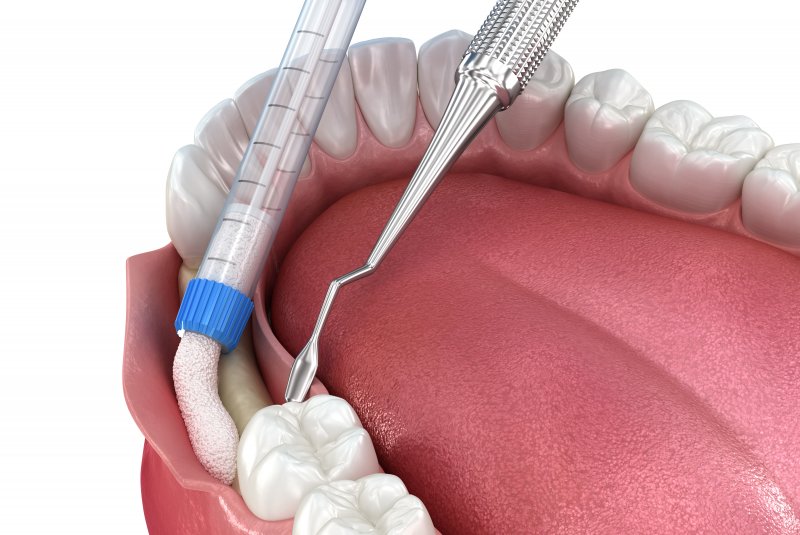
Whether you want to build a deck, a shed, or even an entire house, what is one of the most important steps you have to do first? Lay a strong foundation. The right foundation can make or break the long-term success of any project, and the same can be said for dental implants.
But with dental implants, fortunately, no one has to pour concrete! In many cases, a patient is told they need a bone graft before their new teeth can be placed. What all does this entail, and why might you need this procedure in the first place?
Whether you want to build a deck, a shed, or even an entire house, what is one of the most important steps you have to do first? Lay a strong foundation. The right foundation can make or break the long-term success of any project, and the same can be said for dental implants.
But with dental implants, fortunately, no one has to pour concrete! In many cases, a patient is told they need a bone graft before their new teeth can be placed. What all does this entail, and why might you need this procedure in the first place?
ßmoreà
What is a Bone Graft?
A bone graft is used to strengthen or increase the thickness of the jaw before dental implants are positioned within it.
One can typically be completed in a single appointment and involves applying material to the part of the jaw that will hold the implants in place. It can be bone from another area of the patient’s body (often the hip or rib), donated bone, or a synthetic grafting material.
When the graft is done, it will stimulate the growth of new, healthy tissue in the area over the ensuing weeks and months. That way, the bone can be trusted to provide a secure base to keep the dental implants sturdy.
Why Would Someone Need a Bone Graft?
Your dentist will recommend a bone graft if they don’t think your jawbone is thick enough to reliably house dental implants. There are multiple reasons this may be the case. Some patients just have naturally thinner jawbones, but for others, it actually stems from why they need dental implants in the first place…tooth loss.
When a tooth goes missing, the nearby jawbone stops receiving stimulation from chewing. This cues the body that this area of bone isn’t being used, so it diverts nutrients to other places. As a result, the bone naturally thins, shrinks, and becomes more brittle.
As you can imagine, an unstable jawbone is not the ideal environment for dental implants, but a bone graft is a proven way to address this and ensure long-term success.
Do You Need a Bone Graft for Dental Implants?
This isn’t a question you have to answer on your own. When you go to see your implant dentist, they’ll take a scan of your mouth and jaw, and this will reveal whether it’s ready for implants as is or if you need a bone graft.
Your dentist will be able to explain why a bone graft may be beneficial and answer any questions you might have so you can begin the process of restoring your smile with peace of mind.
A strong foundation can stand the test of time, and that’s exactly what a bone graft can do for people interested in dental implants. For many, it’s their first step toward reclaiming the strong, confident, and healthy smile they deserve.
About the Author
Dr. Allan Mohr has dedicated his career to serving the Massapequa Park community for the last 30+ years and is widely considered to be one of the most accomplished dentists in the country. In demand as a trainer, speaker, and educator, his favorite thing to do is help his patients achieve the smiles of their dreams, and he has enabled countless people to do just that using dental implants. To learn more about implants and how a bone graft might play a role, reach out to Dr. Mohr by clicking here or calling (516) 541-7344.
